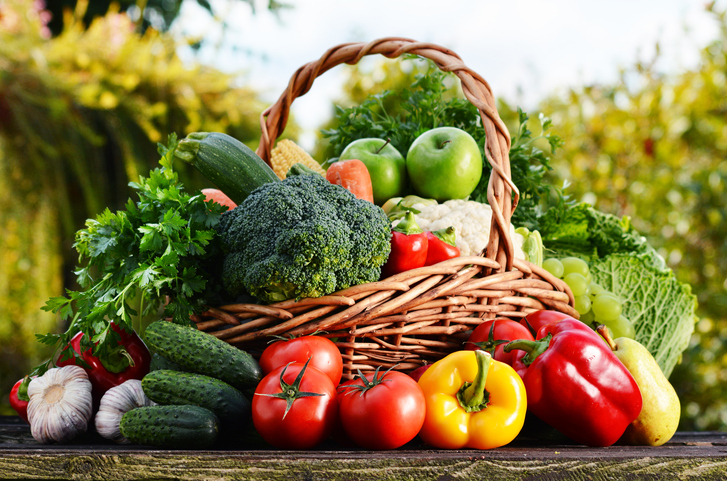Natural Anti-Inflammatory Dietary Help
Progesterone is a natural anti-inflammatory and so are many remedies you may not have considered.

Inflammation is how our body tries to protect us from infection with foreign organisms, such as bacteria and viruses, and the result can be a number of autoimmune diseases.
Chronic inflammation can eventually cause several diseases and conditions, including: rheumatoid arthritis, acute bronchitis, a sore throat from a cold or flu, a scratch or cut on the skin, high-intensity exercise, tonsillitis, sinusitis or a physical trauma.
5 Signs of inflammation
When something harmful or irritating affects a part of our body, there is a biological response to try to remove it. The signs and symptoms of inflammation can be uncomfortable but show that the body is trying to heal itself.
Inflammation is part of the body’s immune response and infections, wounds, and any damage to tissue would not be able to heal without an inflammatory response.
The effects of acute inflammation can be summed up by the acronym PRISH. They include:
Pain: The inflamed area is likely to be painful, especially during and after touching. Chemicals that stimulate nerve endings are released, making the area more sensitive.
Redness: This occurs because the capillaries in the area are filled with more blood than usual.
Immobility: There may be some loss of function in the region of the inflammation.
Swelling: This is caused by a buildup of fluid.
Heat: More blood flows to the affected area, and this makes it feel warm to the touch.
With chronic inflammation symptoms can show differently and can include: fatigue, mouth sores, chest or abdominal pain, fever, rash and joint pain.
What can help
There are a number of natural remedies and bioidentical progesterone is known to have anti-inflammatory properties, so checking your hormone balance for oestrogen dominance would be a good first step.
Progesterone
Progesterone especially comes to the anti-inflammatory rescue when combined with vitamin D. Numerous studies show that vitamin D and progesterone work in synergy. They “fight” abnormal or dangerously prolonged inflammation, especially in the brain, nervous system, and even the gut wall.
Ginger
Ginger can fight pain, including aching joints from arthritis as well as menstrual cramps.
One study found ginger capsules worked as well as non prescription anti-inflammatories like ibuprofen at relieving period pain.
Blueberries
These have lots of phytonutrients that may fight inflammation and lessen pain. If it’s not berry season, frozen blueberries can have the same or even more nutrients than fresh.
Other fruit with antioxidants and polyphenols, including strawberries and oranges, can have a similar soothing effect.
Salmon
Loaded with anti-inflammatory omega-3 fatty acids, salmon makes just about all of the “good for you” lists.
It’s considered heart-healthy and may relieve joint tenderness if you have rheumatoid arthritis.
Other varieties of cold-water fish, including tuna, sardines, and mackerel, are good choices, too.
Turmeric
The compound in the spice that gives curry its bright orange-yellow color can affect several processes in your body, including inflammation.
Studies of people with rheumatoid arthritis and osteoarthritis who took supplements of curcumin found they could walk better and without the side effects of taking drugs.
Black pepper can help your body absorb it, so try a blend of the spices, steeped with ginger and honey into a tea.
Virgin olive oil
This has a compound called oleocanthal, and it works like ibuprofen. Extra-virgin olive oil also has lubricin, which keeps joints sliding smoothly and protects cartilage from breaking down so it might help people with osteoarthritis.
Stick to using it as a dressing or use lower temperatures when you cook with olive oil so you don’t lose any of its many benefits.
Chilli peppers
Capsaicin is what gives chillies their heat and is well known for its painkilling properties in creams and patches.
Some early research suggests that eating hot peppers, instead of putting them on your skin, may reduce and prevent inflammation, too. The “burn” also tricks your brain into releasing endorphins, which block pain signals.
Mint
Peppermint oil relieves the painful cramps and bloating that are the hallmarks of irritable bowel syndrome.
In early research, Brazilian mint tea (made from the plant Hyptnis crenata) has been as effective as a prescription painkiller.
The Anti-Inflammation diet
There are several foods that have been shown to help reduce the risk of inflammation.
Include these:
These help soothe or fight inflammation: olive oil, tomatoes, nuts, such as walnuts and almonds, leafy greens, including spinach and kale, fatty fish, such as salmon and mackerel and fruit, including blueberries and oranges.
Avoid these:
Foods that aggravate inflammation are: fried foods, including chips, white bread, pastry, and other foods that contain refined carbohydrates, carbonated and sugary drinks, red meat, margarine and lard.
While these changes can all help, remember any prolonged inflammation should be reported to your doctor to examine what the cause may be.
Helpful information:
Changing your diet can certainly be helpful, and there is no doubt that inflammation can to quite a large degree be helped by such changes.
However at Menopause it seems that joint pains become more common so ensure you have good progesterone levels and you may also find the following article helpful.
https://anna.blog.wellsprings-health.com/causes-of-stiff-joints-at-menopause/


















